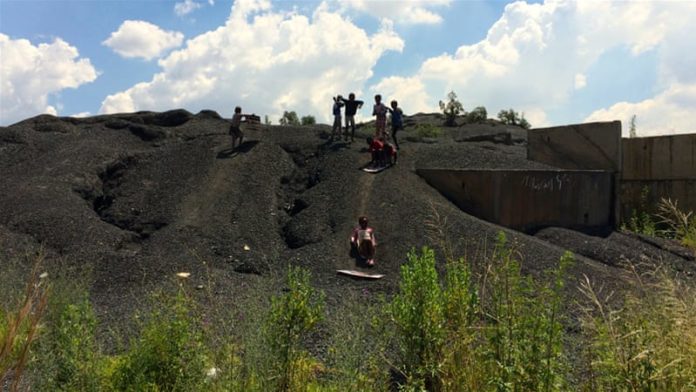
On South Africa’s energy landscape, a vision is taking shape – to not just a move away from burning coal for power, but to do so in a way that creates opportunities for those with the most to lose.
In our experience, there are two key aspects of this process: the ongoing development and implementation of best practice in responsible coal mining; and contributing toward an understanding of needs to be met in a just transition to a less carbon-intensive future.
It has been over three years since Eskom announced the imminent closure of five of its coal-fired power stations. This was generally welcomed as one of the steps towards meeting the country’s environmental commitments as a signatory to the Paris Accord.
At the same time, however, this announcement gave new vigour to the concerns about the fate of workers and communities whose livelihood was dependent on the coal economy. It was clear that a ‘just transition’ would be the ideal route from a coal-intensive energy system to a low-carbon future.
The key argument behind a just transition is that the move away from coal must be a process that is well managed, with a phased approach and clear guidelines that are followed in a planned manner. Importantly, this is an idea that labour also supports.
The number of workers directly involved is significant; coal mining employs about 82,000 workers, and Eskom employs nearly 50,000 in its power stations. Some regional and local economies are built on the coal industry, especially in the province of Mpumalanga. In the municipality of Emalahleni, for example, some 38% of gross value added (GVA) comes from coal mining. The impacts of mine closure on suppliers and industries such as retail and services are expected to be severe.
The process towards trying to understand the social impacts of this transition, though, is already underway. For the past couple of years, Eskom has been requesting technical input on the likely socio-economic impact when power stations are closed. The closure process is likely to involve similar issues to the closure of the associated coal mines – such as re-skilling of employees, economic resilience of communities and diversification of local economies.
Perhaps the coronavirus pandemic, ironically, could add momentum to this drive. As United Nations secretary-general António Guterres has urged, governments should ensure that taxpayers’ money that is spent to rescue businesses should be directed at creating green jobs, as well as sustainable and inclusive growth
There are certainly many lessons that can be learnt from the coal regions of Germany, Australia and Canada. While workers in extractive industries like mining are often presented as the main opposition to decarbonisation policies, the research shows that they are actually quite supportive of environmentally-friendly policies if their immediate interests are not threatened. Active and genuine dialogue with communities is key, followed by effective action such as developing re-employment opportunities in clean industries. Investing in people’s future through training and business development, for example, is also vital.
Experts in South Africa have considerable experience to offer the energy sector in terms of social engagement and facilitating economic resilience. Under currently constrained economic conditions – aggravated by the coronavirus lockdown – there is less certainty about the state’s capacity to invest where it is required.
The environmental impact of coal mining has historically been severe. The cost of rehabilitation and responsible closure of coal mines may be underestimated – especially by new entrants.
As many of the larger coal mining companies in South Africa withdraw from this commodity and sell to smaller firms, a concern arises over the financial resources available for closure. When mines change hands just five to ten years before their end-of-life, this timeframe is often not sufficient to provision for the considerable social and environmental costs of closure.
Whatever the hurdles, the country has a unique opportunity to transition to renewable energy. With our ageing fleet of coal-fired power stations, we have no choice but to build more renewable generation capacity. The country’s Integrated Resource Plan commits us to a decarbonisation pathway hinging on the decommissioning of coal-fired power stations and the rapid uptake of renewable energy.
Perhaps the coronavirus pandemic, ironically, could add momentum to this drive. As United Nations secretary-general António Guterres has urged, governments should ensure that taxpayers’ money that is spent to rescue businesses should be directed at creating green jobs, as well as sustainable and inclusive growth. In South Africa, this could certainly contribute to a just transition from carbon-intensive industries towards a cleaner economic base.
Andrew van Zyl is a director and principal consultant at SRK Consulting. Noddy McGeorge, is principal mining engineer, also at SRK Consulting.











